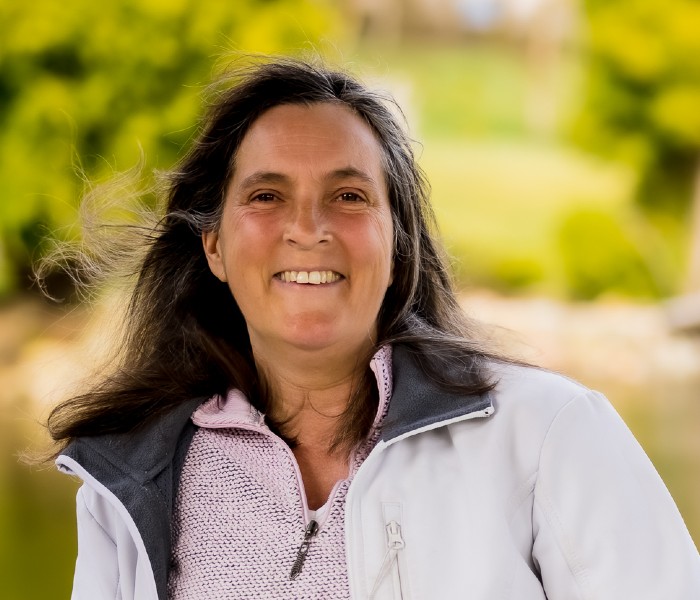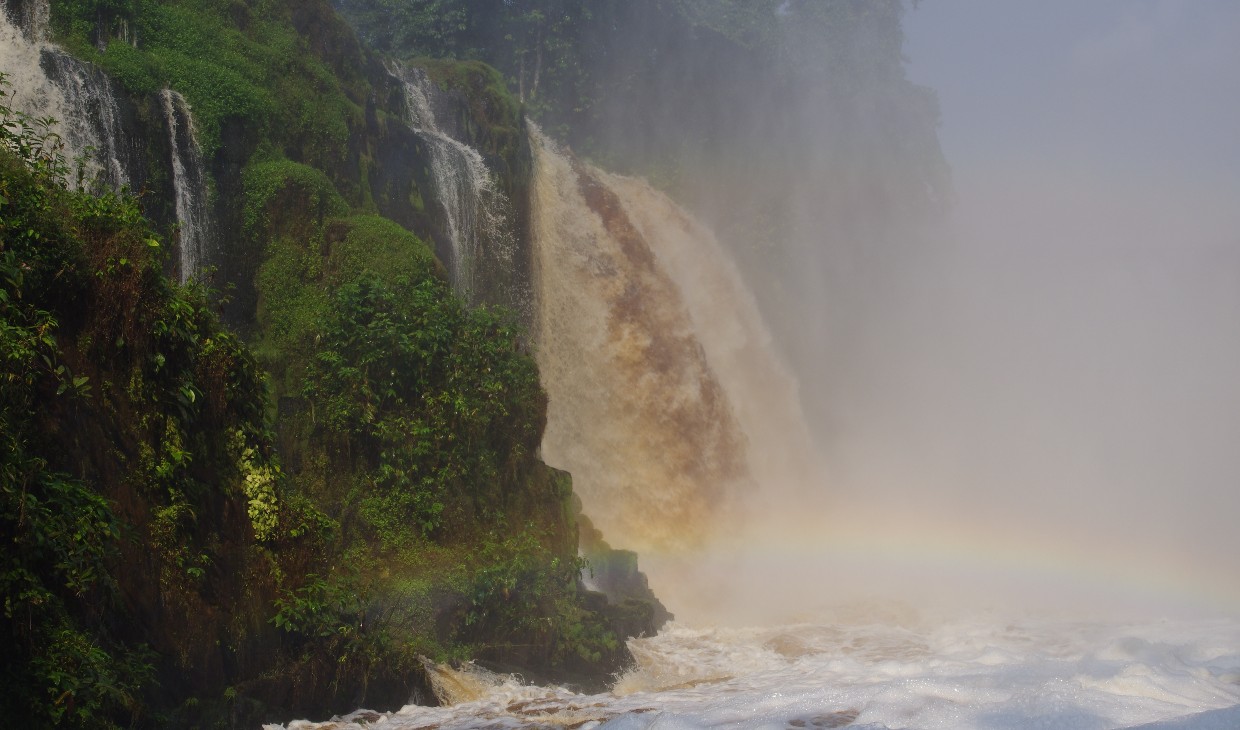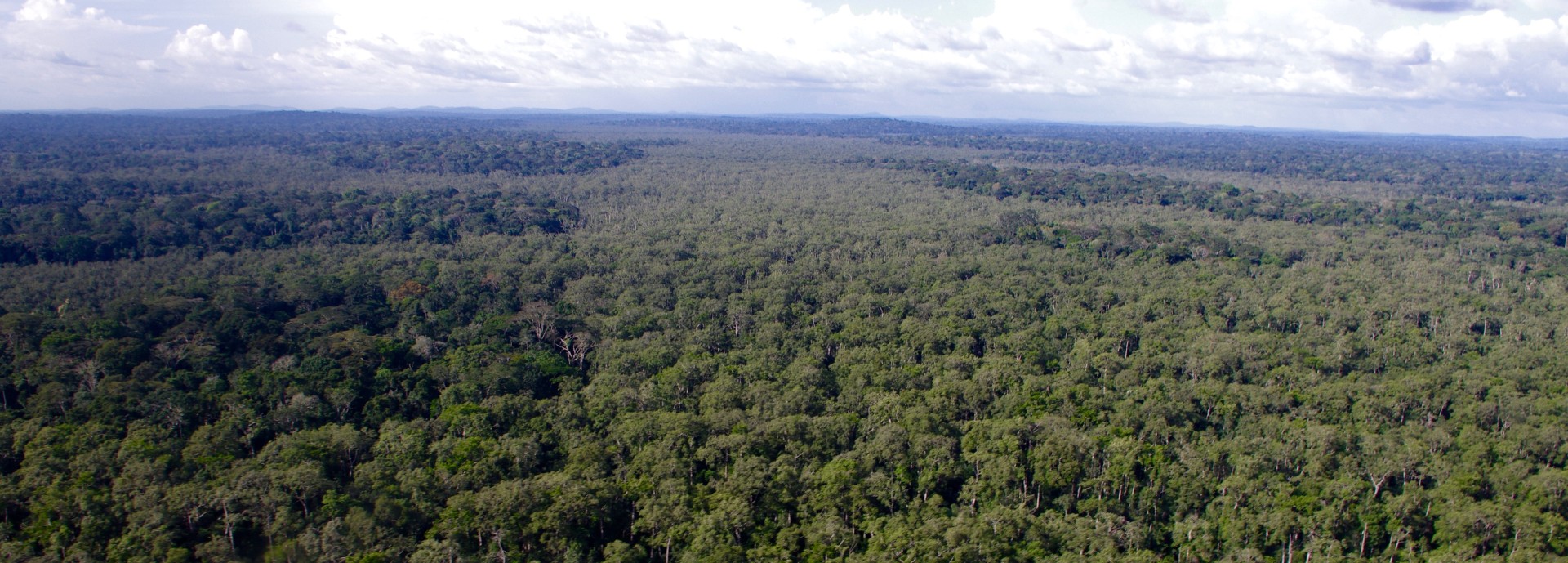A new multi-million-pound project involving University of Stirling scientists will create a research hub to explore climate-smart, conservation-led solutions for sustainable development in central Africa.
Launched in collaboration with the University’s existing partners in Africa alongside the Grantham Research Institute on Climate Change and the Environment (London School of Economics) and the African Conservation Development Group (ACDG), forestLAB will use science-led data and research insights to develop sustainable, research-focused and conservation-based business models.
The team – which includes experts in natural capital, environmental rights, developmental economics and integrated land-use – will provide policymakers, investors and development practitioners with the data and tools required to create world-class models of natural ecosystems management that are environmentally, socially and economically sustainable.
The forestLAB initiative launches as the world’s attention is focused on the COP26 climate conference, which starts on October 31. One of forestLAB’s objectives is to highlight the role that Africa’s high forested, low deforestation countries play in mitigating against global climate change and to develop monitoring tools and financial mechanisms to ensure these forests’ continued protection.

Dean of the Faculty of Natural Sciences
The University is renowned for its natural science research that explores the interrelationships between human needs and biological and environmental systems, and we look forward to bringing this expertise to forestLAB.
Speaking at forestLAB’s online launch event today, ‘Recognising the Value of Africa’s Carbon Superpowers’, panellist Professor Alistair Jump, Dean of the Faculty of Natural Sciences at the University of Stirling, said: “The University is renowned for its natural science research that explores the interrelationships between human needs and biological and environmental systems, and we look forward to bringing this expertise to forestLAB.”
It is hoped that forestLAB’s work in Gabon, in collaboration with the country’s National Centre for Scientific and Technological Research (CENAREST), will develop a blueprint for sustainable development in Africa, realising the value of its natural capital.
Sustainable development
Equatorial Africa harbours the second largest expanse of rainforest on earth and is crucial in the fight against climate change and biodiversity loss. Experts believe integrating sustainable harvesting of natural resources, climate-smart agriculture and sustainable tourism will play a key role in developing new landscape models that conserve biodiversity, deliver economic benefits to local communities and mitigate against climate change.
In June, Gabon became the first African country to receive payment for reducing its carbon emissions, thanks to a model co-developed by the University of Stirling and the Gabon National Climate Council.
Gabon will receive $17million from Norway through the Central African Finance Initiative (CAFI), to be reinvested in sustainable forest management, in the first payment of an eventual $150m over the next ten years.

Faculty of Natural Sciences
The opportunities are immense and forestLAB will deliver fresh ideas for global sustainable futures and big changes in research capacity in the areas in which it works.
University of Stirling and Gabon
The University of Stirling has been working in Gabon for over 40 years and its station in Lopé National Park is deemed a ‘supersite’ for climate research, due to the importance of its unique long-term datasets. ForestLAB will have a physical research hub in Gabon’s Loango National Park – one of the world’s critical havens of biodiversity – and the Stirling team will design and manage a research portfolio – combining natural history, ecology, anthropology and the social sciences.
Professor of Tropical Ecology Katharine Abernethy, of the University of Stirling’s Faculty of Natural Sciences, will lead the research, supported initially by Stirling colleagues Dr Kathryn Jeffery and Dr Robin Whytock, with additional staff and students to come on board over the coming years. They will collaborate with forestLAB partners to set up pioneering biodiversity and human impact monitoring, enabling ecological forecasting for the region, and use existing experience in Lopé to prepare tourism and training materials to enable expert researchers to act as forest tour guides.
Professor Abernethy said: “ForestLAB is a very exciting chance to bring cutting-edge economic, environment and social research together for sustainable development at a global scale. The partnership will convene current high-level thinking to design sustainable business strategies and, importantly, will use rigorous research to test how these strategies deliver sustainable outcomes in communities.
“The opportunities are immense and forestLAB will deliver fresh ideas for global sustainable futures and big changes in research capacity in the areas in which it works.”
One of Stirling’s key findings has been a significant decline in the fruit production of trees over the past 25 years in Lope, along with a drop in the physical condition of forest elephants. Ecological monitoring through forestLAB will be invaluable in assessing the ongoing impact of climate change on tropical forests while devising methodologies and financial mechanisms to ensure their ongoing protection.

Faculty of Natural Sciences, Academic Lead for Scotland's International Environment Centre
This is the first international strategic development project aligned to our new Scotland’s International Environment Centre which will work towards a cleaner, greener, and healthier world for future generations.
Scotland’s International Environment Centre
Funded by the ACDG, forestLAB is one of the first major projects launched under the new Scotland’s International Environment Centre (SIEC) – based at the University of Stirling and established as part of the Stirling and Clackmannanshire City Region Deal to position Scottish research and innovation at the forefront of international efforts to pursue economic productivity through a shift to cleaner, greener growth.
Professor Andrew Tyler, academic lead for SIEC, said: “We are delighted to be playing a leading role in the development of forestLAB and to be working with the African Conservation Development Group, a pioneer of conservation-led development.
“This is the first international strategic development project aligned to our new Scotland’s International Environment Centre which will work towards a cleaner, greener, and healthier world for future generations.
“By working in collaboration with the ACDG, the Grantham Institute at the London School of Economics, and our partners in Africa to focus on environmental rights, sustainable agriculture, and conservation-based tourism, we hope to support transformational change for a sustainable future.”
Sharing expertise
Professor Jump added: “We are incredibly proud to be part of this exciting new collaboration and look forward to sharing our expertise and experience with partners as we work towards the common goals of supporting sustainable growth, safeguarding our future and building collective resilience.
“At the University of Stirling, we lead on tackling global challenges – including in areas such as environmental change, food, water and energy security, and the biodiversity crisis. We are internationally renowned for our natural science research that explores the complex interrelationships between human needs and behaviours and the biological and environmental systems on which we depend. We look forward to bringing this expertise to the forestLAB project and are excited by the potential scale and impact of this work.”

The University of Stirling has been working in Gabon for more than 40 years and the new collaboration will explore climate-smart, conservation-led solutions for sustainable development in central Africa.
Partners
The ACDG develops integrated land-use projects in Africa that combine socio-economic development with biodiversity conservation.
ACDG chair and forestLAB funder, philanthropist Alan Bernstein, said: "African countries are faced with the challenge of facilitating growth while tackling the threats of climate change, biodiversity loss and environmental degradation. Leveraging science-led data and insights from forestLAB can help scale new sustainable models that conserve biodiversity, ensure socio-economic development and mitigate against climate change."
The Grantham Research Institute will lead on developing the green finance element of the project, such as modelling the monetisation of natural capital. Academic lead, Professor Declan Conway, said: “We are excited to launch forestLAB at a time of heightened awareness around the role of tropical forests in tackling climate change and biodiversity loss.”
Professor Alfred Ngomanda, General Commissioner of the National Centre for Science and Technology Research in Gabon, welcomed his institution’s involvement in the forestLAB initiative. The partnership will widen academic support and opportunities for Gabonese students and researchers, at a time when research innovation is desperately needed to ensure sustainable pathways for development.
For more information, visit the University's forestLAB webpages.

